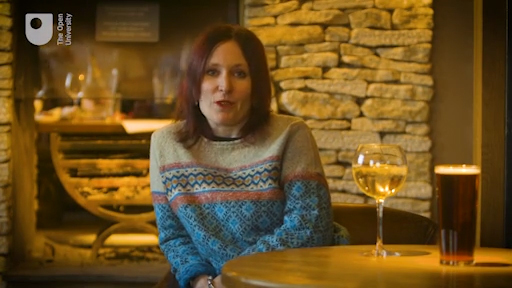Week 1: What is alcohol?
Introduction
Welcome to this free course, The science of alcohol. Have you ever wondered why there are so many varieties of gin? Or how beer is produced? Do you want to know what a hangover really is? This course will answer these and other questions regarding the science which is responsible for the creation of alcoholic drinks and the effects alcohol has on the human body.
Before you start, watch the following short video in which Louise MacBrayne, the course author, gives a flavour of what is covered in the course.

Transcript
In this first week you will read about topics that will set the scene for this course.
You will first be introduced to the simple chemistry of the ethanol molecule and its physical properties. Next you will learn about yeast, the fungal microorganism that is used to convert carbohydrates, such as sugars and starches, into carbon dioxide and ethanol through the fermentation reaction. You will look at a homebrew kit and you can take part in an optional home experiment that will run alongside this course. Furthermore, you will learn about the distant history of alcohol production and how it has shaped our culture.
No prior knowledge of chemistry or science in general is assumed in this course and you will be guided through the basic scientific principles which underlie the topic materials. If you feel inspired to explore science further following this course, you might enjoy another free course on OpenLearn, Discovering chemistry [Tip: hold Ctrl and click a link to open it in a new tab. (Hide tip)] .
By the end of this week, you will be able to:
- describe the ethanol molecule and distinguish it from other alcohols
- explain why ethanol is easily absorbed into the body
- describe some of the basic chemical reactions that ethanol can undergo
- discuss the fermentation reaction and the conditions that affect it
- depict how early human civilisations used alcohol and its effect on their culture.
So, to start, what exactly is alcohol?
The Open University would really appreciate a few minutes of your time to tell us about yourself and your expectations for the course before you begin, in our optional start-of-course survey. Participation will be completely confidential and we will not pass on your details to others.
